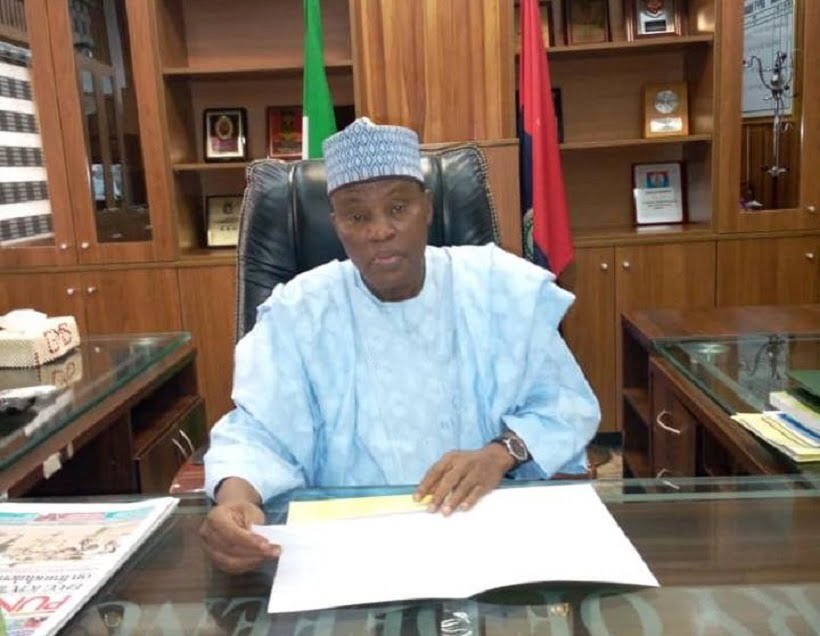OPPOSITION lawmakers recently reaffirmed their resolve to impeach the President, Major General Muhammadu Buhari (retd.), if he fails to tame insecurity within the six-week grace they gave him to perform. It is difficult to fault the move given his colossal failure, his abject cluelessness and incapacity to govern. Beyond this, however, is the urgent need to decentralise policing and secure lives and property.
If anything, the impeachment move is belated. In seven years and two months, Buhari has driven the country to the edge of the abyss; ruined its economy, impoverished millions, divided the people as never before and presided over a descent into insecurity and unprecedented criminality.
Given their own equally lack-lustre performance, credibility deficit and collusion, it is not certain if the lawmakers will remain resolute in removing arguably Nigeria’s worst leader from office. Experience gives scant hope of an imminent reprieve from the misrule of the bumbling ex-general.
For most Nigerians, the great and present danger however is the state of insecurity sweeping across the country. The gyrations of the politicians distract from the daily grind, anxiety and distress citizens face from terrorists and criminals of different stripes. Impeachment may bring relief from an incompetent regime, but that may not immediately make them safe.
The PUNCH remains resolute in its call for a fundamental shift in the failed central policing system to a decentralised one. The National Assembly, state assemblies and all stakeholders in the Nigerian project should insist on the invocation of the ‘doctrine of necessity’ to amend the 1999 Constitution and allow states to establish and run their own police forces.
In the interim, all the 36 states should set up (where there is none) and strengthen their existing local and regional security outfits. This should include arming their operational personnel with sophisticated weapons to counter the war-grade armouries of the thousands of terrorists and criminals spreading death and carnage across the country. Time to act and save the union is running out. Some experts fear an imminent takeover of some northern states by terrorists/bandits.
Aggrieved lawmakers had on July 27 walked out from a plenary session after the Senate President, Ahmad Lawan, shut down a motion on insecurity and impeachment of Buhari. Significantly, the move cut across party lines, though sabre-rattling from members of the ruling party has since dimmed. But beyond the heated posturing, the Ninth NASS can salvage its sorry record by swiftly making necessary constitutional amendments to legislate state policing, ensure legal backing for regional and state security outfits to obtain licences for assault rifles, and maintain stringent oversight on security agencies and their funding.
Buhari’s impeachment is long overdue. His tenure has been so thoroughly disastrous that even the notoriously supine Ninth NASS with its rubberstamp leadership now considers it. But to show its laxity, NASS immediately went on a six-week break after the impeachment threat. With three attacks in succession by bandits on the Federal Capital Territory, two being ambushes of the vaunted Nigerian Army Brigade of Guards and one on the Kuje Medium Correctional Centre where 849 inmates were freed, a serious parliament would have shifted to emergency mode and remained in Abuja to end the crisis.
The crisis is huge. Terrorists freed 69 Boko Haram commanders in Kuje; they attacked troops on the Bwari-Kubwa Road, Abuja, killing a captain, a lieutenant and six soldiers, and injured many others. They also attacked a checkpoint at Zuma Rock. The government immediately shut down schools in the FCT and fear spread through the capital.
Data sourced by Beacon Consulting showed that no fewer than 7,222 persons were killed, and 3,823 others abducted in 2,840 criminal attacks between January and July this year. Ominously, in the 18 months to July, reported the Sunday PUNCH, 16 military bases across the country were attacked by terrorists, while about 800 soldiers have been killed.
Farming, travel, economic and social services have been disrupted in many areas. In Kaduna, Zamfara, Borno, Yobe, Kaduna, Katsina, Niger and Adamawa among others, Islamic terrorists have hoisted jihadist flags in some local government areas, ousting state control, while bandits and Fulani militia are embedded in forests across the country. They are all heavily armed, and raid farms, highways, and communities. They have found a multibillion-naira business in kidnapping for ransom, including mass abduction of school children.
In contrast, the United Nations said a total of 5,024 persons were killed and 6,520 injured since full scale war broke out between Russia and Ukraine on February 24 till July this year. Nigeria is a failing state. It can only be saved by strong measures anchored on local policing.
Terrorism has forced the Nigerian Railway Corporation to cancel most train movements. An Assistant Inspector-General of Police was ambushed between Barde and Jagindi area of Kaduna by terrorists, who killed his orderly. Governor Samuel Ortom of Benue, Governor Babagana Zulum of Borno, Nasarawa Deputy Governor, Emmanuel Akabe; among others have been attacked by gunmen at different times in the last three years, leaving some members of their security detail dead. Buhari’s advance team was attacked in Katsina last month.
A natural federation, Nigeria must have state police; the absurdity of the 1999 Constitution must be corrected today. All other federations decentralise policing, even unitary states do so. The United States has almost 18,000 police forces, federal, state, municipal and local. India’s constitution specifically vests policing functions in its 28 states and eight union territories though complemented by federal police. Mexico has two federal police forces, 31 state police forces and 1,807 municipal police forces. Uniquely, Canada has municipal, provincial and federal police, but eight of its 10 federating provinces, 200 municipalities and 600 Aboriginal communities voluntarily contract their policing to the federal police.
NASS and state legislators must therefore trigger moves for state police today. The state governors also bear responsibility for the plight of Nigerians. They should press resolutely for state police to give meaning to their designation as ‘chief security officers’ of their states.
Governors should immediately fund the existing regional and state security agencies. They should not wait for an inert Federal Government that cannot even protect the FCT!



